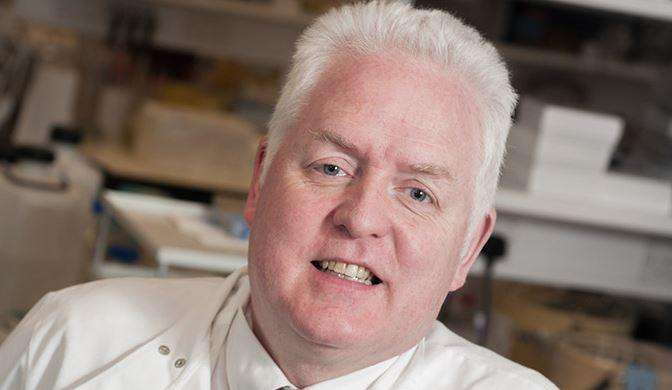Big Data can save lives, says leading cancer expert

The sharing of genetic information from millions of cancer patients around the world could be key to revolutionising cancer prevention and care, according to a leading cancer expert from Queen's University Belfast.
Professor Mark Lawler, from Queen's University's Centre for Cancer Research and Cell Biology is corresponding author of a paper published today in the prestigious international journal Nature Medicine. The paper highlights the potential of 'big data' to unlock the secrets inside cancer cells and enable the development of more effective personalised treatments.
Professor Lawler is also Co-Chair of the Cancer Task Team of the Global Alliance for Genomics and Health (GA4GH), which was established in 2013 to create a common framework for the responsible, voluntary and secure sharing of patients' clinical and genomic data.
GA4GH is a partnership between scientists, clinicians, patients and the IT and Life Sciences industry involving more than 400 organisations in over 40 countries, and has published today's paper as a blueprint to enable the sharing of patient data to improve patient outcomes.
Professor Lawler said: "The term 'big data' refers to huge amounts of information that can be analysed by high-performance computers to reveal patterns, trends and associations. In medical terms, this includes clinical and genomic data that is derived from patients during, for example, diagnostic testing and treatment."
Professor Lillian Siu from Princess Margaret Cancer Centre and the University of Toronto, who is joint lead author on this study said: "With the development of new technologies that have enabled the rapid and affordable profiling of cancer tumours, there has been an explosion of clinical and genomic data. Hospitals, laboratories and research facilities around the world hold huge amounts of this data from cancer patients. But this information is currently held in isolated 'silos' that don't talk to each other. It is this lack of information sharing that threatens the advancement of tailored patient care."
According to Professor Lawler: "Cancer is an incredibly complex disease, and it is constantly changing. Each person's cancer is different. The key to staying ahead in the fight against cancer is to properly understand how the disease evolves. We need to look at the big picture and identify patterns between groups of patients, whose information currently resides in different databases and institutions. To do this, we must break down the 'data silos' that Professor Siu refers to and ensure that genetic and clinical information is shared.
"The aim is to create a type of 'cancer genomic internet'. Imagine if we could create a searchable cancer database that allowed doctors to match patients from different parts of the world with suitable clinical trials. This genetic matchmaking approach would allow us to develop personalised treatments for each individual's cancer, precisely targeting rogue cells and improving outcomes for patients.
"This data sharing presents logistical, technical and ethical challenges. Our paper highlights these challenges and proposes potential solutions to allow the sharing of data in a timely, responsible and effective manner. We hope this blueprint will be adopted by researchers around the world and enable a unified global approach to unlocking the value of data for enhanced patient care."
More information: Lillian L Siu et al, Facilitating a culture of responsible and effective sharing of cancer genome data, Nature Medicine (2016). DOI: 10.1038/nm.4089















